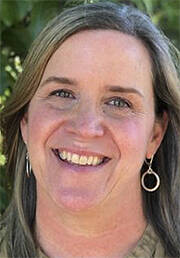“I seem to have to learn, over and over again, that whatever problems I prepare my children for will always be a little to the left or the right of where the problem actually lies. And the problems I am anxious about will generally turn out to be fine. The real problems are almost always surprises that can’t be prepared for.”
~Sarah Polley
You might not be surprised there has been significant academic research around “parental burnout” recently. So how to make parenting less stressful? What works for me may not work for everyone. The trick is finding what works considering the unique landscape of our lives.
Long ago, my baby was in the hospital, and I was desperate for a way to navigate my fear and helplessness. I asked a friend with adult children how to survive this. “Focus on your love, not on your fear.” Hmmmm – how to do that? Things turned out OK, and that advice stayed with me. I decided to try my best to make decisions from love more than from fear as I parented.
Parental well-being is a foundational element of healthy families and depends on many factors—access to resources, supportive relationships and community and a healthy sense of self (understanding our limitations, strengths and struggles). Orienting ourselves toward our well-being as parents is a great way to make the stress of parenting more manageable.
So instead of adding to your to-do list, I have some questions to consider. Choose one that stands out or just pick one and explore it for yourself. Commit to this exploration for 30 days and let me know what you find.
How can I feel less alone in this? It’s easier to bear a heavy load with support. Same goes with the heavy parts of parenting – recruiting friends and communities make it lighter. Find a “go-to person” you can call/text/visit when things get rough. Be really honest about how you are feeling and what is happening. It’s possible your honesty and openness to their support will be a gift allowing your person to do the same. Join a community or lean more heavily into communities you already belong to. Cultivate authentic conversations that result in deeper connections.
If I could be a little kinder to myself in this moment, what would I do? Self-compassion grows when we understand how our tender spots, things that spark anger, fear and uncertainty, make sense given our life experiences (how we were parented, difficult transitions/losses, trauma). When we can fully accept ourselves it is easier to face the stresses of life. People make mistakes. Reframe mistakes as opportunities for repair and modeling to your kids what it means to be human. When we try to hide our struggles from our kids, they begin to believe they need to be perfect.
How can I bring my focus to the present moment? Ruminating about the past and worrying about the future keep us from showing up in the way that we want to as parents. Remember whatever is happening is just a snapshot in time, a chapter in a much larger story.
Who am I? Remember the parts of yourself outside of being a parent. Parenting can swallow up our identity. Come back to the other parts of yourself, the roles and relationships that are life-giving, that remind you of your value, that make visible your connection to the world around you.
What values/beliefs guide me when I am overwhelmed or don’t know what to do? Craft a guiding question or phrase for those moments when you don’t know what to do or fear has you paralyzed.
Back to the story I began with. Flash forward 15 years – I found myself again afraid for my kid’s wellbeing. I had to make a choice I didn’t want to make. I went to the woods, and looked up at some alders near my house. I remembered to ask myself “if my values are to focus more on love than on fear, what would love have me do?” I got my answer, felt more solid ground under my feet, and carried on.
Come in for parent counseling or join a parent group if you need more support. Together we’ve got this.
Helen Burke is a therapist at Bainbridge Youth Services, which has a monthly column in this newspaper.



